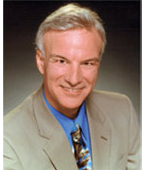
Host: Anti-Aging Psychologist Dr. Michael Brickey
Guest: Dr. Sara Lawrence-Lightfoot
Broadcast and podcast on webtalkradio.net. The podcast is also below.

Chapters in books are so unnecessary. Think how many trees would be saved if the print just continued on. But we love chapters. They help us group concepts, alert us to transitions, and reward us for completing an episode. Harvard professor Dr. Sara Lawrence-Lightfoot is a developmental sociologist who focuses on stages of human development. She describes ages 50-75 as the third chapter in our lives and titled her new book, The Third Chapter: Passion, Risk, and Adventure in the 25 Years After 50.
I’m amused at theorists that come up with principles that are so simplistic as to be useless tautologies like Freud’s conflict between our life and death drives, theologians who see life as a conflict between good and evil, and anti-aging products have the one single key to health and youthfulness. Stage theories can be simplistic and rigid. What I like about Erik Erickson’s eight stages and Dr. Lawrence-Lightfoot’s third chapter is that they are flexible and accommodate individual differences. Thus some third chapter Boomers and seniors focus on career walls, some go back to previous passions, some deal with unresolved traumas, and some go yet another direction. For some it is a shift from career achievement to making the world better or leaving a legacy. Earlier stages of development may be revisited briefly, in great depth, or not at all.
Self-help books and gurus tend to focus on building motivation, visualizing outcomes, and following principles. Dr. Lawrence-Lightfoot focuses on studying role models and their pain and struggles. As her book title indicates it’s adventure and it’s also risk. However, whether it is people starting a business or creating a new chapter in your life, naively following your bliss can be disastrous. The more you learn about and prepare for what you are getting into, the more likely you are to be successful. For example, when considering a new career, learn as much as you can about it. Role models and mentors can be enormously helpful in reducing trial and error learning. The Third Chapter is a wonderful source for role models on dealing with the personal and emotional anxieties and roller coaster ride that often goes with making big life changes. So why do it? As Erickson put it in his seven stage, it’s about generativity vs. stagnation.
Humans love stories and this is about making sense of your life story and choosing your next chapter-as opposed to just going with the flow and letting things happen. Thinking of your future as a story can help. Telling it to others is very helpful. The Third Chapter makes an excellent group discussion book and the web site has a free discussion guide. Perhaps writing your story can help as well. If you have ever taught a course, you know that you learn the material much better when you teach it to others. Likewise, you become much clearer about your story when you tell it to others or put your story in writing.
Dr. Lawrence-Lightfoot’s website for her book is www.TheThirdChapter.com. Dr. Brickey’s other websites are www.DrBrickey.com and www.Anti-Aging-Speaker.com.
